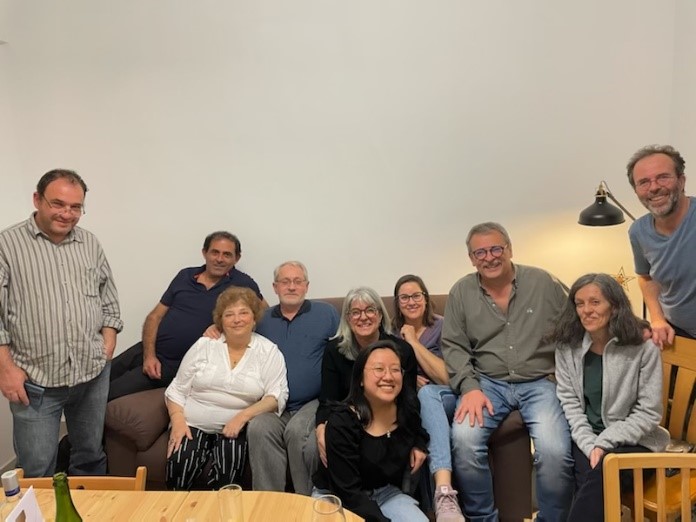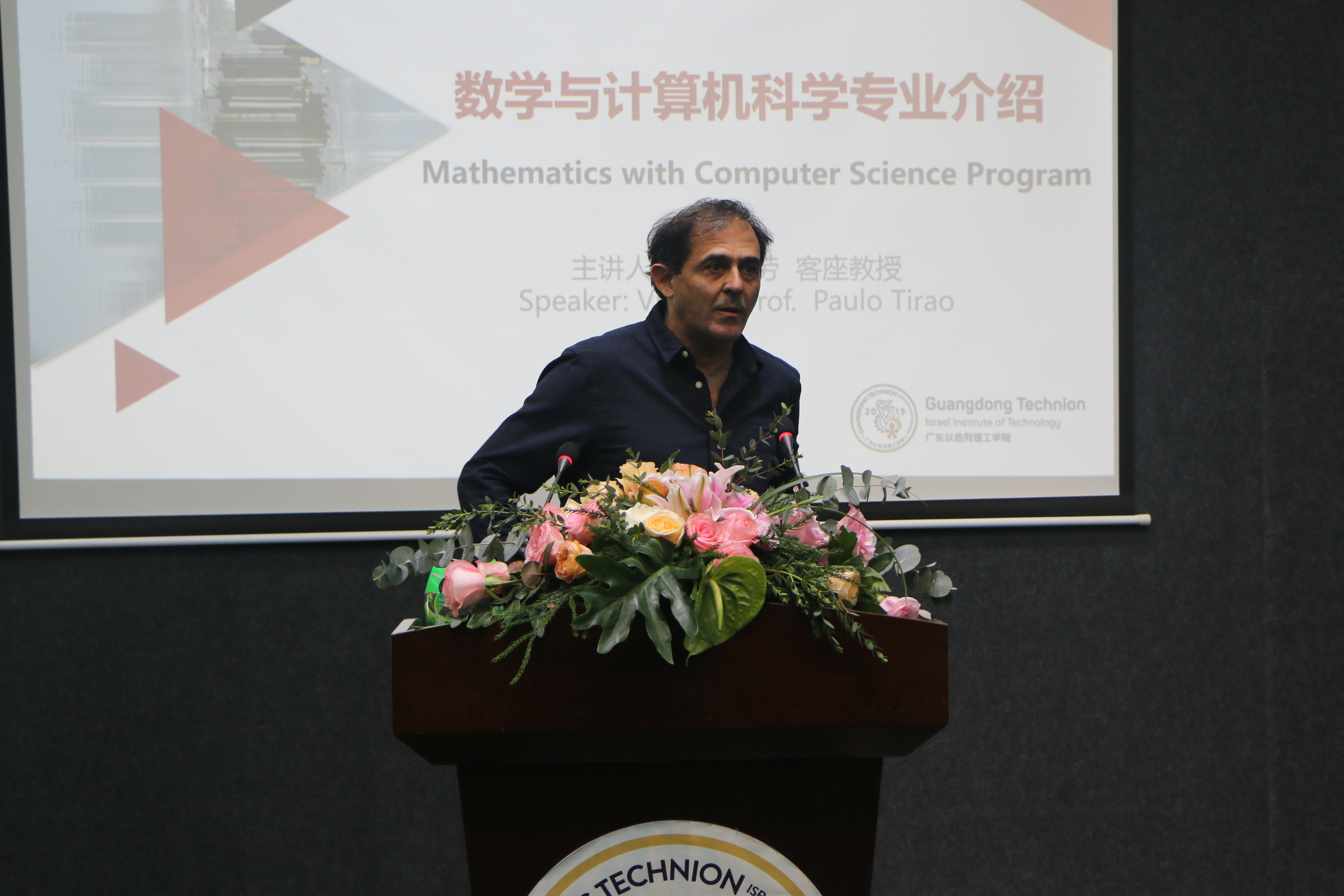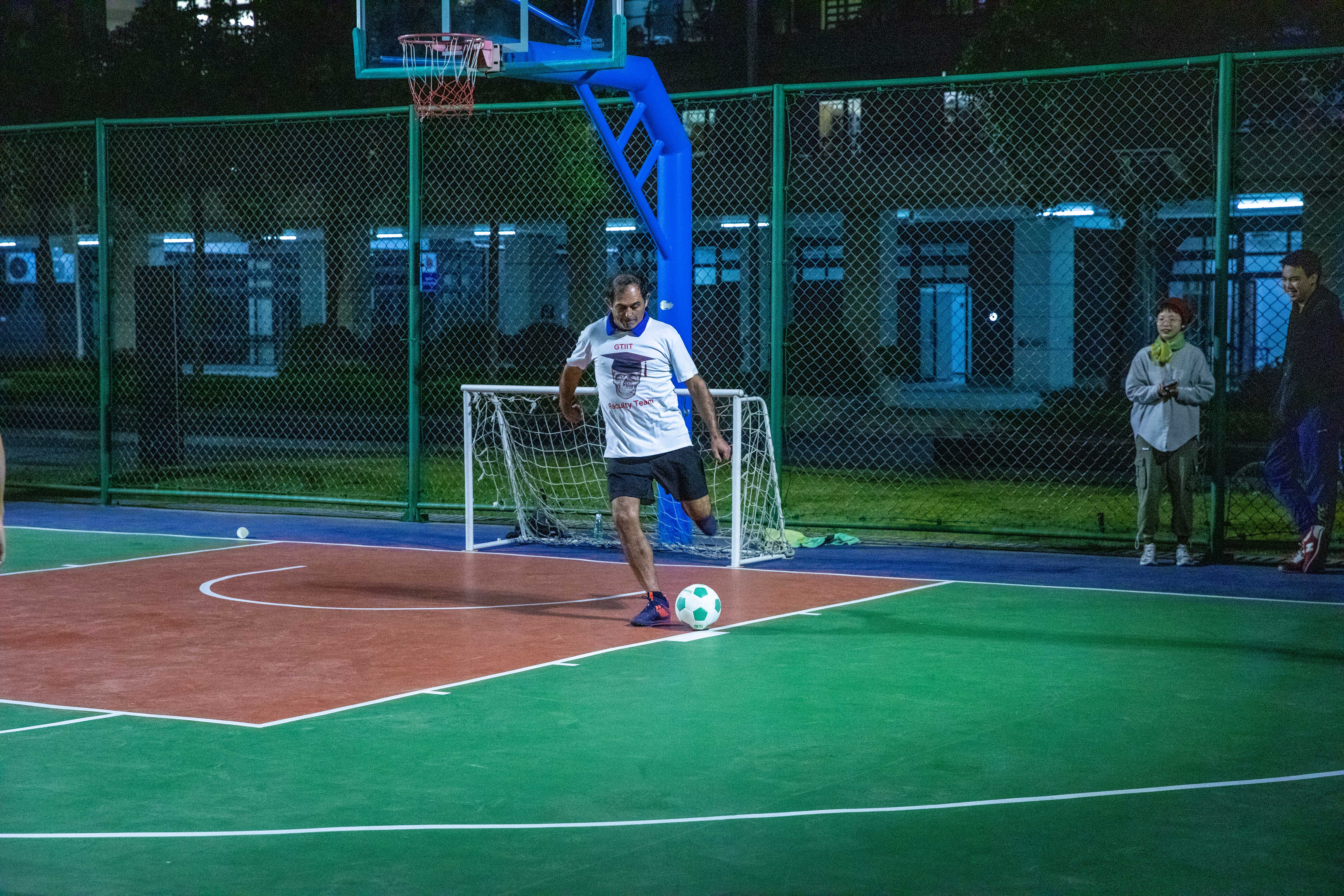PostTime:2/16/2022
Teacher is like a lighthouse, enlightening all the passing generations. In Guangdong Technion – Institute of Technology, language is not a barrier between teachers and students. Teachers devoted themselves to teaching and research, winning many students' respect and love.
From this article, we will present a series of interviews with teachers, who will share their insights on education, so that more people can get close to GTIIT's classes and teachers and know about its characteristics and educational philosophy.
Before the interview, we have heard from many students about how much they love Prof. Paulo Tirao's class. Professor's enthusiasm about mathematics and education is like the sun-drenched land of Argentina, where he comes from. He not only teaches mathematics, but also philosophy.
What comes to you first when thinking about mathematics? The difficult math quiz, the unproven Goldbach's conjecture, or the widely-used financial pricing model? “Math is like invention,” Professor told us, “like art and sports, we need to explore it with enthusiasm.”
Below are Professor's words.
Doing math in GTIIT
I started teaching in this beautiful coastal city Shantou in 2020.
My biggest feeling is that it is a great place to study math. Thinking about math problems is like planting trees. It takes generations, time, and patience. And here, perhaps because of Chaoshan's tea culture, people don't live a fast pace of life, and are more willing to wait for the flower to bloom. Ideas flash into my mind while walking, chatting and drinking tea, and the atmosphere allows us to settle down and do valuable research. Such life is perfect for a mathematician.

Professor Paulo Tirao(second from left) with collegues and students
For students, they can not only enjoy the academic atmosphere here, but also learn what they truly need. Same as in Technion, math classes in GTIIT are divided into different types. Every program provides math classes with similar course names, but they are actually different. Students in other programs like Materials Science and Engineering (MSE) and Chemical Engineering (CE) are learning “math for engineer”, in which formulas and languages are more like tools to solve problems in their field. But the students of Math program are taking “math for mathematician”, which offers a very rigorous and systematic training, requiring them to master the formulas while understanding how these were invented. This sounds hard, but each step is a foundation stone for the road toward a mathematician.
What is mathematics?
Every time a student asks me this question, I will always answer: math is a very special subject.
Math is totally different from any other subjects in many ways. Math is the only subject invented by human beings. Biology and chemistry are studying nature, and economics is studying the society. They all have a specific target, while math is more like developing a game. Chess does not exist before it is invented. Only after the first person set and popularized the rules did chess become part of our life. So it is hard for laymen to imagine what will happen – even the mathematicians have no idea about the future in math world.
So I always tell my students to be patient, especially when they would like to continue their academic road, because undergraduate study only helps you complete the basic math language training in this complicated unknown field.
What can a mathematician do?

Professor Paulo Tirao in class
Whether you want to pursue a career in academia or not, training in a mathematics department will equip you with three skills that will last a lifetime: the ability to learn, the ability to think precisely and the ability to innovate.
If you go to the library and find the math books on the shelves, most of them contain only 100 or 200 pages. Compared with the thick textbooks of biology, chemistry, law and other subjects, math books are so thin. That's because mathematics is a very, very condensed subject. In my classes, we give a one-year-long course with 100 pages, but each page may take a week or more to fully understand. Therefore, the important part of learning mathematics in GTIIT is: learning how to learn from the condensed content, in addition to specific knowledge of algebra and computer science.
In GTIIT, the most relevant skill for each student is not knowledge per se, but the ability to learn new things. I often tell students that when you learn math, you're not just learning algebra. You're learning "how to learn Math". Here's a skill you may not need in other subjects: knowing how to learn. This transferable learning ability allows students to handle other knowledge frameworks as well. The skill may sound abstract, but in fact, every mathematician has been trained to learn new things in a very profound way. If a good mathematician enters the auto industry, even knowing barely anything at first, he will be able to use his learning ability to quickly master the tools of a completely new environment within half a year.

Professor Paulo Tirao Introduces GTIIT Program
Precise thinking is also an important skill for mathematical research. Mathematical statements are different from daily words: it happens "under all circumstances" or "under some circumstances"; if there is a number that does not meet the criteria, the description is not “real”. We use precise languages and statements. Precise thinking, which means asking the right questions, making precise statements, and giving precise arguments and reasons, is the core and unique ability of mathematicians. With the rapid development of science and technology, supercomputers can process a large amount of data, but there are still many open problems in mathematics that remain unsolved, which indicates that the thinking framework of mathematical system cannot be simply replaced by machines. At the same time, this framework can help solve many practical problems, such as fixed priorities, strategic design, organizational relations and so on, and can be widely used in medicine, stocks, industry, chemistry, physics and other fields. That's why we always emphasize precisely thinking to students.
Innovation is another ability required by mathematics departments. Students learn proof of all results already proved, hoping to find a new solution or discovery. This is the only way before becoming researchers and mathematicians. However, as I have mentioned above, mathematics is a subject invented by man, so it is extremely difficult to design new proof methods or make breakthroughs. And every person who studies mathematics is also cultivating his or her ability to innovate during the process, and on someday, accidentally discovered a result that has not been done before. Therefore, in mathematics education, we continue to emphasize the ability to innovate, which is the tradition of Technion-Israel Institute of Technology and what we pursue in GTIIT.
Fight against frustration to enjoy the art of math
Many students may feel unready when first coming to GTIIT, unaccustomed to the English teaching environment as well as the new teaching methods. In GTIIT, taking classes is not simply listening to the professor, and mathematics is not equal to calculation. Students are required to precisely prove the formulas that were only taught to use in exam-oriented education.
I have taught students from different countries and found that Chinese children are always anxious compared to their foreign peers. They always want to get answers in two minutes and in this way evaluate their learning based on the calculations, but that's not the way to learn math. The math world requires a more open mind and tolerance for frustration and anxiety. A very simple formula may take you one day, three days, or even a month to prove. However, most Chinese kids cannot accept that.
I tell my students every day that there are a lot of open questions in mathematics. Human beings have been waiting for over 2,000 years, however, even until the invention of computers, they still have no answers. This is normal, and more importantly, is part of the beauty of mathematics. Unlike economics and law, where you can type in a search bar and get an answer, math is in some ways more like art or sport, where the brain can truly understand after countless thought exercises and meditation. Even Lionel Messi, the great soccer player, needs the right guidance and training day and night to perform well in the match.


Professor Paulo Tirao plays football with students
I come from Argentina. Many Chinese teachers and students have expressed their yearning and love for Argentine football. But what I want to emphasize is that Argentine football has achieved excellent results because of our football culture and training system, and the system can be copied and transferred. I hope we can also bring the training system of innovative talents and mathematicians in Technion to GTIIT.
Text/Photos: GTIIT News & Public Affairs
© GUANGDONG TECHNION-ISRAEL INSTITUTE OF TECHNOLOGY | 粤ICP备17036470号
